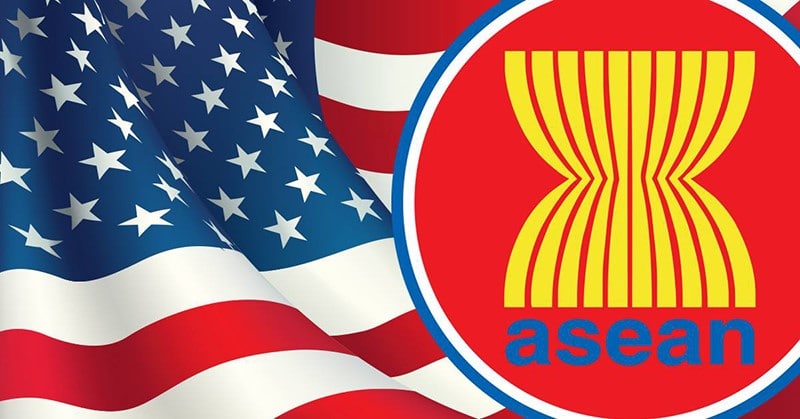

Dr. S. M. Alatas is a Malaysian academic with a passion for decolonizing international relations.
She can be reached at peanutminat@gmail.com
18 February 2021
It has been barely three weeks since Joseph Robinette Biden Jr. was sworn in as the 46th president of the United States of America. In the midst of a raging pandemic, the question on everyone’s minds is, how will the Biden administration re-set America’s global image?
In Southeast Asia several discussions and media reports have focused on the new administration’s diplomatic and security strategy for engagement in the region. The small nations which make up the Association of Southeast Asian Nations (ASEAN) are cautiously optimistic. They are anticipating a “kinder, gentler” and more engaging America, unlike the frightful demagoguery characterized by the Trump administration.
Despite this optimism, there are questions in the region, concerning South China Sea geopolitics and narratives about the Quad Plus. How “new” will foreign policy under President Biden actually be?
Engagement and Constraint, not Containment
Regardless of who the US president is, historically, Southeast Asian nations have never “put all their eggs into one basket”. Despite the region being in extreme anxiety mode with Trump’s xenophobia directed at China, small states will continue to maintain neutrality. ASEAN nations are hoping for more diplomatic language and less hegemonic rhetoric from the Biden administration.
While China remains a giant economic power to contend with, small countries in the region have been successfully managing security challenges in the South China sea for decades. Contrary to what the American public may perceive, the disputes in the South China Sea have been an on-going security challenge that pre-dates China’s meteoric economic rise.
As far as handling China, Southeast Asia hopes there will be less talk of policies that hint of containment (such as the Quad Plus). What is preferred are strategies that employ more diplomatic language and narratives of constraint, rather than containment. Regional states would prefer if the US participates more in regional meetings that include China. China has been in Southeast Asia’s backyard for millennia. The region has learnt to co-exist with China.
The US by contrast is a relative newcomer to Southeast Asia. It is hoped that the Biden administration will understand and adapt to the Southeast Asian skill of accommodating diversity. ASEAN sees both the US and China as playing significant roles in the economic and security affairs of the region. Smaller states are hoping that the Biden administration will recognize their agency in regional stability. This includes participating in ASEAN-led dialogues, without an agenda to coerce any of the ten nations to take sides.
It might also be beneficial for the US under President Biden to see China’s rise through a Southeast Asian lens. ASEAN nations do not see China’s presence in the region any more threatening than they perceive the Quad Plus rhetoric and US security maneuvers in the South China Sea. Both are seen as a worrying trend. Southeast Asians also hope that US anxiety about China could be toned down. Under Trump, this anxiety was exaggerated. It provoked unnecessary uncertainty for the region. Provocative language emanating from media sources as well as Trump’s incessant domineering and racist social media presence was counter-productive. ASEAN hopes for less destabilizing rhetoric under Biden.
Navigating US-China Rivalry in the Region
It would be an excellent idea if Kurt Campbell, the US coordinator for Indo-Pacific affairs, could visit the small powers in Southeast Asia, and establish dialogues with all 10 ASEAN countries. It would ensure US presence in the region and will assure the smaller nations that the US is committed to long-term stability, while accommodating China.
The Biden administration will also realize that Southeast Asia sees the US as all-powerful. They should also see that, by Southeast Asia’s engagement with China, it does not mean the US should fear losing its premier position on the world stage. After all, 8 out of 10 ASEAN nations still consider the US as their primary and largest trading partner.
The Biden administration should pay more attention to how ASEAN perceives the “China threat”. ASEAN sees the US-China rivalry as the Americans not being able to accept other powers who challenge its premier position on the global stage. Rather, through an ASEAN lens, the Biden administration could grow to accept that there is nothing the US can do to stop the rise of China. A more inclusive Biden administration will make room for other powers to occupy the world stage, provided the rules of proper engagement are followed.
A “new” US under President Biden could find a place within this geopolitical framework, whereby the US will still lead without being domineering. In other words, Washington should adhere less to the old-fashioned hegemonic tendency to be a dominant military, economic and cultural power. What is more important to Southeast Asia is for the US to re-set its compass, and lead in constructive engagement.
Re-introduce Values into US Foreign Policy
Many governments around Southeast Asia have clamped down on freedom of speech especially critical statements of political leaders and their governments. Covid-19 is used as an excuse. The US under President Biden can reiterate basic human rights ideals which were gravely threatened under the Trump administration. The Biden administration must emphasize, for example, that police brutality is nothing to be proud of; that martial law in Myanmar today is inhumane and undemocratic. Crackdowns on social media critics in many Southeast Asian nations are a violation of basic personal freedoms. The US under Biden can further address sexism and discrimination against women in Southeast Asia. It would be wonderful if the Biden administration would pay more attention to Muslim voices in Southeast Asia.
40% of Southeast Asians are Muslim. They live in Brunei, Southern Thailand, Malaysia and Indonesia. 65% of the entire global Muslim population live in Indonesia, which is the world’s most populous Muslim country. Three out of ten ASEAN nations are Muslim-majority nations. At least half of all ASEAN nations have Muslim communities, living in relative harmony amidst diverse ethnicities, religions and cultures. This can be widely contrasted with the situation in West Asia, which has been in military and political turmoil for decades.
It is obvious that the US needs to understand Islam more. The US under Biden must remove the politics of oil from its dealings with Muslims. Ordinary Americans must know more about Muslims. President Biden will have to undo decades of anti-Muslim and racist ideologies that emerged after 9/11, and more so under Trump. Biden needs to engage more with Southeast Asia, not only in dialogue about China but also about Islam and Muslims. In this way, the American public will be re-educated about Muslims. They will have an idea that Islam and Muslims are not in political disarray everywhere. The majority of Muslims are not terrorists, trouble-makers, involved in civil wars or haters of the West. President Biden could help ordinary Americans understand that domestic problems in most Muslim countries do not require US military intervention.
This is a simple and doable wish list for the Biden administration. Good luck!
Disclaimer: The views expressed in the article are of the author and do not necessarily represent the institute’s policy.

